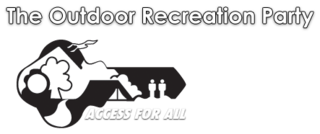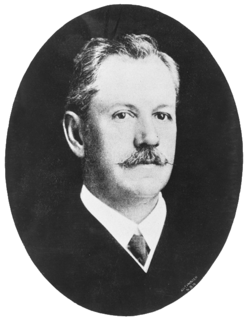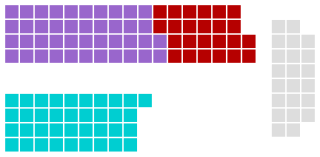Related Research Articles

Richard Graham Corbett CBE is a former British politician who served as the final Leader of the European Parliamentary Labour Party (EPLP), from 2017 to 2020. He was a Member of the European Parliament (MEP) for Merseyside West from 1996 to 1999 and then for Yorkshire and the Humber from 1999 to 2009, when he lost his seat, and again from 2014 to 2020. He attended Shadow Cabinet meetings and was a member of the Labour Party's National Executive Committee.
Members of the New South Wales Legislative Council who served in the 54th Parliament were elected at the 2003 and 2007 elections. As members serve eight-year terms, half of the Council was elected in 2003 and did not face re-election in 2007, and the members elected in 2007 did not face re-election until 2011. The President was Meredith Burgmann.</ref>

The Outdoor Recreation Party (ORP) was a minor political party originating in New South Wales (NSW), Australia. It professed to represent the outdoor community and interests such as cycling, bushwalking, camping, kayaking, 4WD motoring, skiing, fishing and shooting. It was formally allied with the Liberal Democratic Party.
Members of the New South Wales Legislative Assembly who served in the 43rd parliament held their seats from 1971 to 1973. They were elected at the 1971 state election, and at by-elections. The Speaker was Sir Kevin Ellis.</ref>
Members of the New South Wales Legislative Assembly who served in the 42nd parliament held their seats from 1968 to 1971. They were elected at the 1968 state election, and at by-elections. The Speaker was Sir Kevin Ellis.</ref>

The Non-Custodial Parents Party was a minor political party in Australia from 2001 to 2020. It supported less government control of many aspects of daily family life, focusing on reform of family law and child support.
This is a list of members of the New South Wales Legislative Assembly who served in the 41st parliament held their seats from 1965 to 1968. They were elected at the 1965 state election, and at by-elections. The Speaker was Sir Kevin Ellis.</ref>
Members of the New South Wales Legislative Assembly who served in the 40th parliament held their seats from 1962 to 1965. They were elected at the 1962 state election, and at by-elections. The Speaker was Ray Maher.</ref>
Members of the New South Wales Legislative Assembly who served in the 35th parliament held their seats from 1947 to 1950. They were elected at the 1947 state election, and at by-elections. The Speaker was Bill Lamb.</ref>
Members of the New South Wales Legislative Assembly who served in the 33rd parliament held their seats from 1941 to 1944. They were elected at the 1941 state election, and at by-elections. During this term, the opposition United Australia Party merged with the new Commonwealth Party to form the Democratic Party in late 1943. The merger was only at a state level, however; the federal United Australia Party, however, remained intact during this period. The Speaker was Daniel Clyne.</ref>
Members of the New South Wales Legislative Assembly who served in the 34th parliament held their seats from 1944 to 1947. They were elected at the 1944 state election, and at by-elections. The opposition Democratic Party merged into the nascent Liberal Party in late 1944, becoming the New South Wales branch of the new party. The Speaker was Daniel Clyne.</ref>
The members of the New South Wales Legislative Assembly who served in the 21st parliament of New South Wales from 1907 to 1910 were elected at the 1907 state election on 10 September 1907. The Speaker was William McCourt.</ref>
Glasgow Tradeston constituency was created in 1885 and elected Liberal Archibald Corbett as their MP from then until he retired from the House of Commons in 1911 to take a seat in the House of Lords as 1st Baron Rowallan. Although Tradeston had consistently voted for Corbett, he did not consistently stand under the same label. In 1885 he stood as a Liberal against a Conservative. In 1886 following a split in the Liberal party he stood as a Liberal Unionist against a Liberal. Thereafter this was the normal contest until 1910. He had re-joined the Liberal party in 1908 but he did not win the official Liberal nomination in January 1910. This time standing as an Independent Liberal he scraped a victory against both Liberal and Conservative candidates. Then at the last general election, standing as the official Liberal candidate he won comfortably.

The Centre Party, occasionally referred to as the Centre Movement, was a short-lived political party that operated in the Australian state of New South Wales. Founded in December 1933, the party's leader and most prominent figure was Eric Campbell, the leader of the paramilitary New Guard movement. That organisation had been established to oppose what its members perceived as the socialist tendencies of Jack Lang, the Premier of New South Wales, but declined following Lang's dismissal in early 1932.

The 1910 New South Wales state election was held on 14 October 1910 for all of the 90 seats in the 22nd New South Wales Legislative Assembly and it was conducted in single-member constituencies with a second ballot if a majority was not achieved on the first. Both adult males and females were entitled to vote, but not Indigenous people. The 21st parliament of New South Wales was dissolved on 14 September 1910 by the Governor, Lord Chelmsford, on the advice of the Premier Charles Wade.

The 1907 New South Wales state election was held on 10 September 1907 for all of the 90 seats in the 21st New South Wales Legislative Assembly and it was conducted in single-member constituencies with a first past the post voting system. Both adult males and females were entitled to vote, but not Indigenous people. The 20th parliament of New South Wales was dissolved on 19 August 1907 by the Governor, Sir Harry Rawson, on the advice of the Premier, Sir Joseph Carruthers.

The 1901 New South Wales state election was held on 3 July 1901 for all of the 125 seats in the 19th New South Wales Legislative Assembly and it was conducted in single-member constituencies with a first past the post voting system. The Parliamentary Electorates Act of 1893 had conferred the right to vote on every male British subject over 21 years of age who was resident in New South Wales for a year or more. The 19th parliament of New South Wales was dissolved on 11 June 1901 by the Governor, Lord Beauchamp, on the advice of the Premier, John See.
Members of the New South Wales Legislative Assembly who served in the 56th Parliament held their seats from 2015 to 2019. They were as elected at the 2015 state election and at by-elections. The Speaker was Shelley Hancock.</ref>
References
- ↑ Smith, Rodney (2006). Against the Machines: Minor Parties and Independents in New South Wales 1910-2006. The Federation Press. pp. 110–111. ISBN 978-1-86287-623-1.